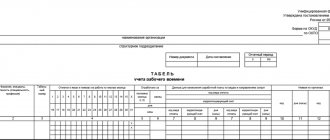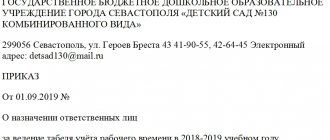A facsimile signature is an exact copy of the original. In other words, it is a stamp that in some cases can be placed on papers. However, it is not permissible to use facsimiles on all documents.
There is no precise legal term in Russian legislation, but this stamp is widely used in practice by many legal entities and individual entrepreneurs. A facsimile is a seal that has a mirror image of someone's signature.
Its presence is very helpful when you need to sign a large volume of documents, but there is no desire to waste time on it. After all, putting a stamp is much faster. But not everyone knows in which cases the use of a fingerprint is permissible, and when a facsimile has no legal force.
The use of a facsimile signature instead of the original must be specified in the cooperation agreement. However, even if an agreement is reached, there are a number of documents that will not gain legal force when a facsimile is signed.
These include: powers of attorney, payment documents, primary documentation, delivery note and invoice, as well as documents sent to government agencies. It is also important to note that it will not be possible to deduct VAT based on faxed invoices.
If, despite the above restrictions, you believe that you need a stamp, we strongly advise you to consult a professional. He will show you in which cases it is better to use a facsimile.
On which documents can facsimiles be stamped?
By internal rules of the organization, as well as agreements with counterparties, the company itself can establish the conditions for using a stamp instead of the original. The law does not clearly define cases when a stamp can be used. However, in practice, situations are widely known when the use of a high-quality counterfeit can lead to unresolvable legal disputes.
Thus, the rules for using a copy can hardly be called clear. But it is important to know where you can put a stamp and which documents do not allow this.
Let's say you want to relieve the work of the accounting department and allow them not to sign every primary document, but to put a facsimile signature using a stamp, which will significantly speed up the work process.
Do you have any reason for this? What if the mutual cooperation agreement stipulates that the primary accounting documentation, when stamped, acquires the same legal force as when signed in the original?
In general, we should consider in detail what is the procedure for using an easy-to-use stamp for certain types of legal relations and when exactly a facsimile signature cannot be used.
Facsimile on primary documents
In this case, the main rule applies: the stamp cannot be used on any documents submitted to government agencies. For example, a facsimile signature cannot be placed on all papers that the tax office may be interested in during an audit.
If the primary tax documentation or cash documents are issued with a stamp, then the tax office may make justified claims to the taxpayer.
Thus, affixing a stamp on primary accounting documents and any reports to the budget is unacceptable. All primary papers must be certified by the responsible persons in their own hand.
Facsimile of the power of attorney
Does your trading company have a large staff of sales representatives or forwarders who are required to collect money from clients every day by proxy? How much effort does it take for the responsible person to sign each power of attorney for collecting funds. It would be great to solve this problem with a stamp.
Unfortunately, it won't work. The law states that it is prohibited to put a facsimile signature on powers of attorney under any circumstances, even if a copy of the document is issued. This legislative norm is reflected in the Letter of the Ministry of Taxes and Taxes of the Russian Federation No. 18-0-09/
Facsimile and invoice
It may seem to you that since you have specified the conditions for using the stamp in the agreement with the counterparty, then when issuing an invoice for payment it will be enough to simply put a stamp. This is wrong. Russian legislation prohibits the use of a facsimile signature even in this case.
Payment documentation must be signed in original. Otherwise, organizations may be subject to a hefty fine. Therefore, financial documents must only bear the original autograph of the responsible person.
Facsimiles and invoices
A similar prohibition applies to invoices and other accounting documents, such as cash documents. It is allowed to use a facsimile signature if the documents are intended for secondary use or are attachments to the main one. But in this case, an agreement must be concluded between the counterparties to replace the original with a stamp.
https://youtu.be/IJoMAybiC1M
Necessity and benefits of use
The need to use facsimiles arises in large organizations where the volume of document flow is large, and the manager has to spend a lot of time putting a personal signature. Other reasons are excessive busyness, absence of a manager at the workplace.
The documentation requires signing within a certain period of time. Advantages of using facsimiles:
- speeding up the document flow process so that employees do not waste time studying and signing documentation upon receipt;
- the ability to recognize the official who put such a signature;
- designation in the document of complete confidential information that allows the company (organization) to neutralize the financial risks of losses;
- reflection of exclusively reliable information in the generated document;
- quick conclusion of transactions between firms and companies;
- simplifying the exchange of documentation within and outside the company.
Reference! Facsimile makes the work of accountants and entrepreneurs simplified and accelerated. A company or firm with a high workload, processing for signing a large number of documents every day has the right to approve the procedure for its use independently. An original copy of the signature speeds up the document flow process, which is important when the manager or his deputy is often absent from the enterprise. It can be affixed to primary documents (regulatory acts, instructions, regulations, notices, invitations, letters, invoices, contracts, invoices, acts) that determine the procedure for conducting office work.
Civil transactions
According to the Civil Code of the Russian Federation, an original copy of an official’s signature is allowed to be used for concluding civil transactions. The parties must draw up an agreement between themselves on the procedure for using a facsimile to acquire legal force, and reflect in detail the terms in the text of the main agreement.
The agreement must clearly state all possibilities for signing documentation using facsimiles or enter into an additional agreement between the parties. Otherwise, the legal transaction may be invalid in case of disputes in court. A document may turn out to be a falsification if it is supported by a facsimile in cases prohibited by law.
The scope of application of the original copy of the manager’s signature is extensive, so there is no single position on its use from the point of view of legislators. According to Art. 160 of the Civil Code of the Russian Federation, the signature can be used in civil transactions. But one of the parties must accept it by creating an additional agreement.
In order to avoid financial problems at the time of using facsimiles, lawyers advise closely cooperating companies to differentiate the possibilities of use for different documents, i.e. then develop a detailed list.
It is important for entrepreneurs to first study the judicial practice and legal norms related to the use of facsimiles. Sign an agreement to accept a facsimile signature so that such documents, when considered in court, can become significant evidence and acquire legal significance.
Controversial positions
It happens that courts consider cases on the extent of lawful use of facsimiles on documentation. Specific cases of permission or prohibition are not described in the legislation. For example, tax authorities do not accept applications for VAT deductions from taxpayers, stating that primary financial reports must be signed personally by the head of the enterprise. Although certification of documents using facsimile will not lead to special tax consequences.
Facsimile is used in many cases . There is no single position of legality regarding use. One thing is clear that it is allowed to be used in civil transactions. The Civil Code of the Russian Federation nevertheless provides for the legality of signing documents in this way.
Legal transactions
When making legal transactions, the law does not prohibit reproducing facsimiles. However, the procedure and case should not contradict the agreement of the parties and legislative acts. The only option for the legal use of a seal is to draw up an agreement between the parties when concluding or executing a transaction.
To be able to use a facsimile, a separate document in any form must be drawn up or a complete list of cases with its use must be attached to the main contract. The text states:
- conditions;
- all documentation with the possibility of printing;
- positions and initials of employees with the right to use an original copy of the signature.
Reference! A copy of a handwritten signature, as well as a seal, in case of disagreements between companies and going to court, must be endowed with legal force.
Primary documents
It is not permissible to place an imprint of an official’s signature on primary documentation in the form of a rectangular stamp. This is prohibited by law. The papers must be signed by the chief accountant or the head of the company personally, otherwise the tax authorities may make justified claims against taxpayers.
Officials often refer to Federal Law No. 129, which states that primary documents must bear the handwritten signature of management. Taxpayers legally have the right to go to court to substantiate their claims against taxpayers.
Invoice
There is a heated debate about facsimiles on invoices. This is a pressing issue for taxpayers, because the invoice is the basis for applying tax deductions. Tax authorities express a unanimous opinion regarding such documents.
It is unacceptable to put a copy of the signature on them. An original is required, otherwise invoices will simply not be accepted before VAT is deducted.
The note! When explaining the issue of affixing a copy of a signature, tax officials refer to legislative documents and norms of the Tax Code of the Russian Federation, although the courts often come to the defense of entrepreneurs. But the case will be successful only if an additional agreement is drawn up between the parties on the use of facsimiles. The Tax Code of the Russian Federation clearly states that an invoice is not the basis for accepting a tax amount for reimbursement or deduction if it is compiled with violations or does not comply with the established procedure (Article 169 of the Tax Code of the Russian Federation).
If an invoice is issued by an individual entrepreneur, then it must be signed personally by him, indicating the details and a certificate of state registration. If compiled by an organization, then directly - by an accountant, chief executive, authorized person on the basis of an order
Agreement
The agreement can be drawn up, supported by a copy of the original signature. This does not contradict legal norms, but is subject to agreement between the parties. The main thing is that the validity of the facsimile certification inspires confidence.
When drawing up an additional agreement, it is recommended to attach a table with sample signatures and corresponding imprints of the data of persons authorized to use facsimiles. Such actions must be agreed upon between the parties involved in the transactions .
If the case goes to court, then the contract, after signing, will be recognized as legal only if a number of actions are taken that indicate acceptance of the contractual terms. If a contract is certified without a preliminary agreement or the presence of a responsible person at the time of signing, then the transaction may be challenged in court.
Reference! A copy of the signature is used when concluding contracts (Article 162 of the RF Housing Code). Documents acquire legal force, as well as with a regular signature, but if the counterparty agrees to accept the facsimile as a signature. Otherwise, such an agreement may be declared invalid by the court. The counterparty will lose if the transaction is not written in writing.
Waybills
You can certify delivery notes with a copy of the original signature when drawing up an additional agreement. Although tax authorities, again, may consider such assurance to be unlawful and refuse to deduct VAT. According to the law, the delivery note is the primary document, which means it must be signed in person by an authorized person.
But the issue is controversial. Invoices follow the standard form established by the State Statistics Committee. This means that it is not necessary to sign them by hand. There is no complete ban on reproducing facsimiles, but they can only be affixed to unified forms of invoices. If the form is developed by the organization independently, it can no longer be used.
Acts
Acts on completed work are drawn up in free form; a unified form is not provided . They display the required details and the official’s handwritten signature.
Let us recall that a facsimile is a method of producing a reproduction of a person’s hand signature. Counterparties have the right to use acts to certify the work performed, but again with a concluded agreement on use.
The news release that outlines how to use a fax signature on an invoice is below.
https://youtu.be/fteRnbrAicQ
How to distinguish a facsimile from an original
To speed up the work of their company, many companies resort to using a facsimile signature without notifying the counterparty about it. In fact, many companies are simply unaware of the legal implications of such substitution. At first glance, it can be difficult to distinguish a stamp from the original, but below we will tell you about the main distinguishing features:
- If you received several documents of identical type from a counterparty, then you can compare the handwriting. The original is always a little different, but the stamp remains a stamp. Therefore, if everything matches 100%, then you have a high-quality fake of the original. You have the right to demand replacement of all documents.
- You should always have documents with a sample of the original. As a rule, when an agreement is concluded, you can take from the counterparty a set of constituent documents that are certified by the original. If you have any doubts about the authenticity in the future, you will have the opportunity to compare the paper with the sample. The stamp typically lacks fine detail and is thickened around the edges.
- Another way to determine originality is to examine the area around the signature and the back of the paper. When using a stamp, a relief of strokes appears from strong pressure.
All these methods are suitable for regular situations when it is important for you to know whether the counterparty is being honest with you.
But in case of more complex disputes that could lead to serious legal consequences, it is best to contact a specialist. A high-quality stamp can be quite difficult to recognize visually, especially if there are no available tools or special skills.
Jurisprudence regarding facsimiles
Let’s say that your organization, according to the internal rules reflected in the regulations, put a stamp on powers of attorney. Above in the article we discussed that this cannot be done. And now the sales agent, by proxy, took money from a client of your organization, but did not hand over the money to the cashier.
You decided to bring the matter to court. In fact, this situation can be interpreted in such a way that the power of attorney initially had no legal force, and therefore the money should not go to the cash desk. But what will be the position of the judges regarding the fact that the powers of attorney were stamped and not the original?
There are several court positions regarding the legality of using a stamp. The court takes into account that Russian tax and accounting legislation does not contain the necessary rules prohibiting the use of stamps. Based on this, the court may reject the tax inspectorate’s arguments about the illegality of cases of signing primary accounting documentation using a stamp.
There are no clear requirements in the law that documents must be certified as originals. There is no definition of a personal signature in any legislative act, that is, it (theoretically) can be either original or facsimile.
The use of a stamp on invoices violates Article 169 of the Tax Code of the Russian Federation. This is justified by the fact that the use of stamps is allowed only within the framework of civil law relations, and the tax sphere does not provide for such opportunities.
It is important to remember: if the documents sent to the tax office must be certified only as originals, then there is no other way to claim VAT for deduction.
There were many cases where tax laws were actually violated, which led to a negative court decision. Therefore, in order to avoid legal disputes that may arise in the course of economic activity, it is necessary to certify accounting and tax documents with original autographs of authorized employees.
So, if you think that a facsimile signature is a convenient stamp that will significantly speed up the workflow in your company and free up several working hands, then this is not so. Very few documents can be certified this way.
Without fear, the stamp can be used for internal documentation, in business correspondence, when signing contracts, if counterparties previously stipulated the possibility of using such seals in office work.
Sources:
About using facsimiles
About facsimiles on powers of attorney
Rules for signing invoices
When is it allowed and when is it prohibited?
To determine the list of documents that can be signed in facsimile, it is necessary to analyze a large list of regulations. Their list includes:
- letters of gratitude;
- certificates, invitations;
- confirmation of payment under the letter of credit;
- patents, certificates, certificates;
- Unified State Exam results.
When determining the list of documents that can be signed with a facsimile signature, you should pay attention to the region, since this factor also has an impact.
In practice, there are those documents that cannot be certified by a facsimile signature, among them:
- legislative acts;
- tax returns;
- employment contracts;
- powers of attorney;
- source documents;
- invoices;
- statements from individuals and legal entities.
https://youtu.be/KRS83STOIck







